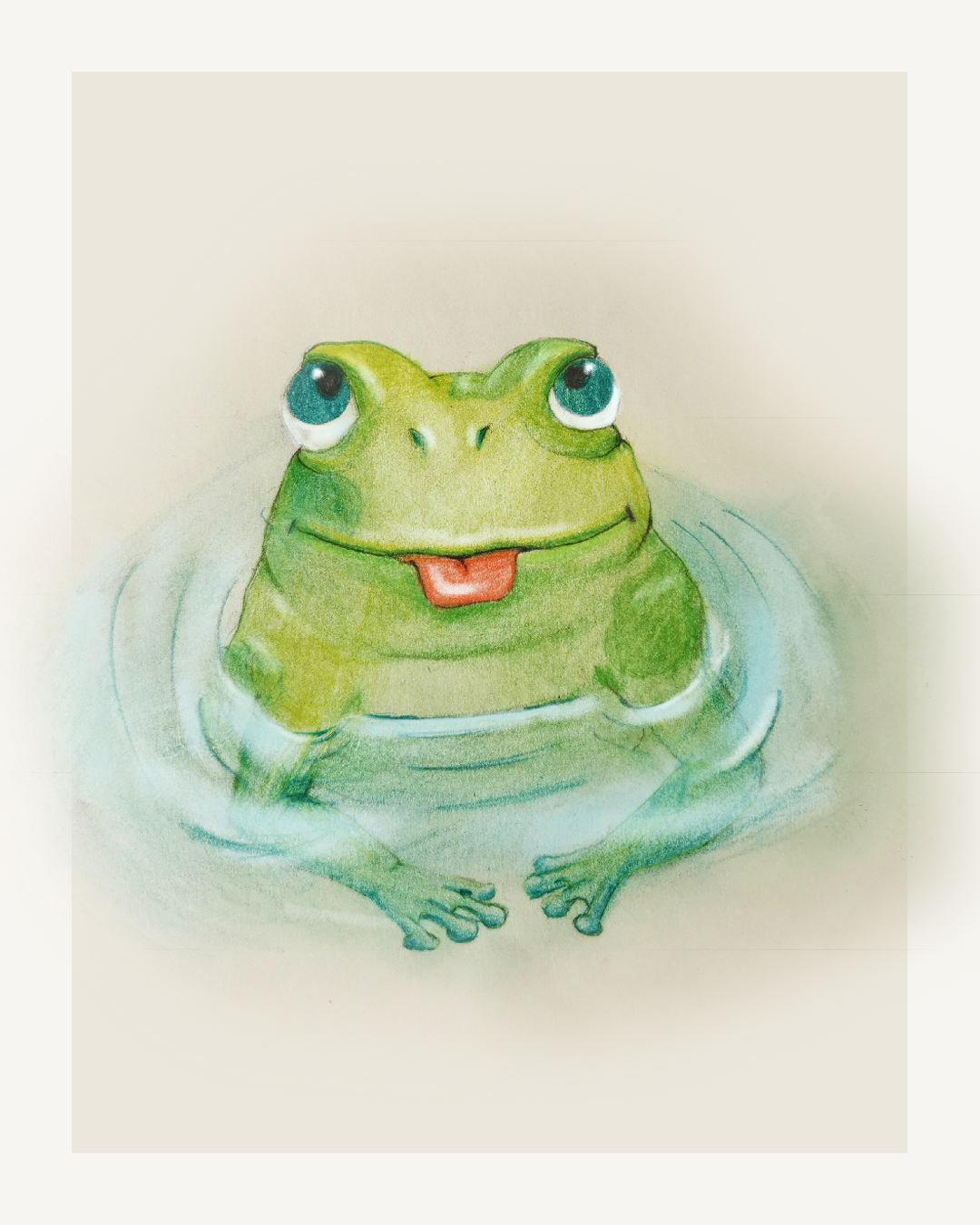Under the Water
Written by Lea Mioč
It happened at night—or at least that was when it began. Clouds rumbled, lightning flashed, but most of all, rain poured from the sky. “Like a bucket tipping over,” said Lila’s mum. But Lila would have called it a waterfall. Rivers swelled and flooded the streets. A boat took Lila to school, but soon even that was no longer enough. They had to move.
Together with their neighbours, they went to the nearest hill, which each day shrank into more of a mound. They climbed higher, into the mountains, which no longer seemed so tall. At last the rain stopped, but the water did not recede. It rose a little, it sank a little, but in the end it stayed where it was. Life calmed again, and people somehow adapted. They built tall, tower-like houses. To Lila, it seemed as if they were building new mountains.
Their adaptability annoyed her. Why was no one working to solve the problem? Beneath that water lay her home, her old life. One day, as she stared angrily at the water’s surface, it suddenly swelled up and burst towards her.
Startled, she jumped back and cried out:
“The water is attacking us again!”
“Most people just call me Regi,” came a sharp voice.
“The water called Regi is attacking us!” she shouted again—before at last she saw the source of the voice: a small green frog.
Illustrated by Gregor Šuštar
“What are you staring at? Haven’t you ever seen a frog before?”
“Not a talking one,” Lila replied. She had calmed down a little, but was not quite ready to accept that a frog—especially a cheeky one—was speaking to her.
“People fail to notice many things,” the frog said.
“What do you mean?”
I mean that I’ve seen you here by the bank many times, and you’ve never noticed me. But I’ve heard that you’re not very happy with this new landscape.”
“Who would be happy with this? Everything’s destroyed, flooded, sunk…”
“How gloomy you are. If we frogs had looked at the land and the gases in the air that way, we might never have adapted to become amphibians. Once everything was under water. But when it changed, we adapted—and look, now we thrive both in water and on land!”
“Humans are not amphibians. Water may be lovely in the sun, but it’s also terrifying—especially the depths, and the way it keeps changing.”
“I understand… Sometimes I too find it frightening and cruel. But this is Mother Nature. She is almighty, greater than us, and sometimes unjust. But that does not mean she isn’t also wonderful, full of beauty and opportunities. Come, I’ll show you. Can you swim?”
Lila swam in the very water she had hated only moments before. With Regi she learned to dive. Soon she could hold her breath for a long time, and the vast depths no longer frightened her. She discovered breathtaking landscapes, now home to all sorts of water creatures—fish, snails, crabs and seaweed in every colour imaginable.
One day, after a long day of diving, she and Regi sat on the bank at sunset, talking.
“You know, I really do feel now that my life is both on land and under the water,” said Lila.
“That’s good—you’ve adapted. But many more changes will surely come; nothing lasts forever,” Regi replied.
Weeks earlier, those words would have filled Lila with dread. But that evening they didn’t. Deep inside she believed that in every change she would also find something beautiful, and that everything would be all right—even if it didn’t seem so at first.
“Perhaps the magic of life is exactly this,” Lila said, “to find beauty in what is fleeting.”
And she enjoyed the last rays of the sun as they stroked her cheeks.

